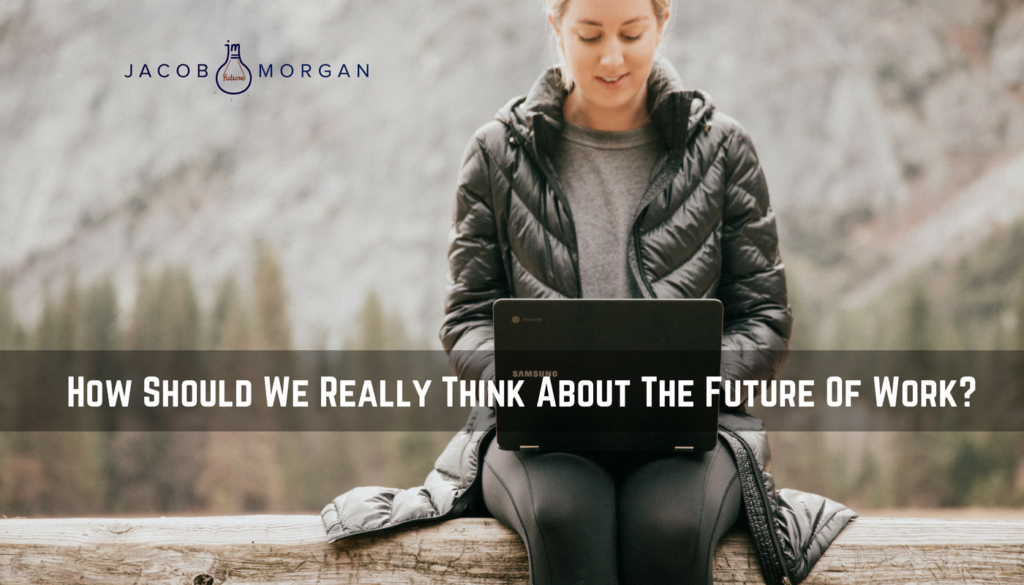
What is the future of work? It’s a question people are always asking, but one that no one seems to really know the answer to. Maybe that’s because we’ve been thinking about it the wrong way. Instead of focusing on a single future that we can’t control, we should switch to an active mindset and ask what are the potential futures that might happen, and what do we need to do to get to the future we want to see?
The truth is that there isn’t a single future of work. It isn’t inevitable that automation will become a huge part of every industry or that brick-and-mortar stores and offices will close. There are many options of things that could happen, and even different companies and industries will experience different futures. The future of work in healthcare will likely look remarkably different from the future of work in finance. Likewise, the future of someone working in retail will likely be different from the future of someone working in IT. There isn’t a single thing that will happen to build the future; rather, it’s a collection of ideas, technologies, and circumstances coming together to create something new.
The second part of the new question is perhaps the most important. Once we’ve recognized the variety of things that can occur in the future, we need to see how we can play a role in shaping how things change. We can’t and shouldn’t just sit back and let things happen to us. The future of work is fluid, and the workers of today have a chance to shape the future and prepare for it. The future isn’t something that just happens—we have the potential to design and create it.
In order to really think about the future of work, we have to open our minds to creativity and decide what is possible and what matters most. There are a number of directions the future of work could go, but starting the conversation can help steer where things head. If the future of work is all about flexibility, do we want to have more freelancers and gig workers or more people working in offices with flexible schedules? Is the most important thing work perks or being able to work wherever we want? Will we work for multiple organizations at once or settle down with one company? These are questions to consider when deciding where we want our focus to be and what the future will look like as a whole and for each industry and company.
That’s just the beginning—there are also things to shape for the future in technology, compensation, training, connectivity, and much more. Clearly, the future of work is much more complicated than a simple question. This is good news, however, as it provides opportunities to customize the future and mold it into something that we want it to be. The future won’t necessarily look the same for everyone, but it will likely have similar themes for all workers. As we shape the future, we have more time to prepare and develop the skills and processes necessary to thrive as things change.
Now isn’t the time to sit back and wonder what will happen in the future—it is the time to put ideas into action and plan and prepare for the future. The future of work—whatever it holds—will affect everyone whether we like it or not, so it’s best to be proactive and get involved while we have the chance. What will you do to prepare for your future of work?
My new book, The Employee Experience Advantage (Wiley) analyzes over 250 global organizations to understand how to create a place where people genuinely want to show up to work. Get my free training series to create powerful Employee Experiences, or become a member of the new Facebook Community The Future If… and join the discussion.
The post How Should We Really Think About The Future Of Work? appeared first on Jacob Morgan.



